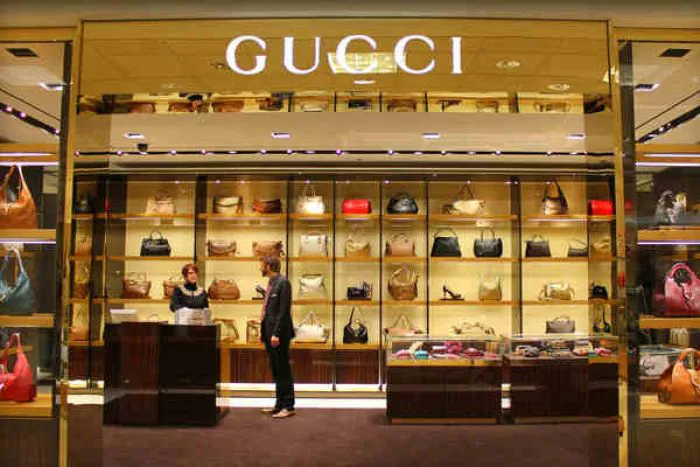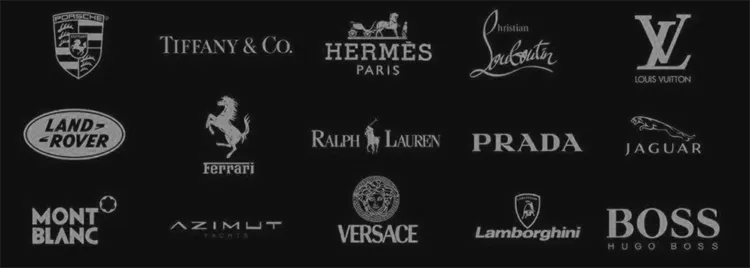Luxury and luxury brand are among the terms that we hear a lot these days.
Many people dream of having a very high income one day and buying from luxury brands. Some entrepreneurs and brand owners are interested in responding to this need by creating luxury brands.
But what is luxury and what does luxury mean? Is every expensive brand really luxury?
Should all entrepreneurs and owners of all brands dream of creating a luxury brand?
Can we enter the realm of luxury products simply by making a product with a low cost price more expensive?
Expensive brands
The first point that we should address at the beginning of this article is that making it expensive and entering the high price range alone cannot turn any brand into a luxury brand.
A person who produces clothes and chooses his prices multiple times the market norm, a person who charges multiple times the price of his competitors for his training courses, a manufacturer who deviates from the cost price in an extreme way and declares a very high price for his product. It’s just a high-end seller and nothing more.
In a free economy, you might not be able to tell anyone why you’re overselling, but overselling still has its problems. Expensive sales increase the customer’s expectation, and as a result, customer satisfaction is likely to decrease, and as a result, the decrease in satisfaction leads to a decrease in loyalty.
High selling also forces the high seller to suddenly and irregularly reduce their prices and offer very high discounts to customers on any relevant or unrelated occasion.
If you cannot sell to the customer at the price you announced permanently and continuously in the long term, and every day you have to resort to promotional tools such as buy two, buy three, save, you are probably a high-selling brand .
Premium brands
Naturally, premium brands are expensive. But according to their high price, they also offer high functional value to the customer. In simpler words, despite the high price, the customer feels that he got something for this price.
For example, consider a hotel that offers free breakfast, lunch and dinner to its customers. There is also a large water park inside the hotel for travelers.
In addition to these, many entertainment programs are considered for customers, from music performances to free tours in the city.
The cost of staying in such a hotel will be expensive compared to other hotels that do not have these services. But we can’t say that we are facing overselling. We are talking about a premium service here.
Similarly, think about how expensive Samsung’s S series phones are compared to other lines like the A. Here we are facing a premium line. That is, for the price we pay, we will receive functionality and efficiency.
Many Asian car brands are also of this type. That is, for every riyal they charge from the customer, they provide different options and facilities to the customer. Here, too, we are dealing with premium brands.
Of course, we must not forget that these divisions and judgments are not absolute. For example, Lexus in Japan is simply a better Toyota, while in a country like India, it is considered a luxury car. Or Benz is luxury in Iran, but in America, it is less a symbol of a luxury brand, and Bentley, Rolls Royce, Ferrari and Maybach are better examples of luxury car brands in America.
However, wherever you feel that the brand has to give the customer higher performance and more points and options for a higher price, you can say that the brand is closer to the premium category.
The main features of the luxury brand
Different theorists have different views about the definition of luxury and the characteristics of a luxury brand. But in general, a luxury brand has a number of main features that everyone agrees on, and we will discuss these features further.
1- Beyond efficiency
One of the most important characteristics of luxury brands is their unnecessaryness. This non-essentiality can be in the whole product or in some features of the product. In other words, the luxury product is far away from efficiency.
If you ask someone why you bought a Patek Philippe watch, they are unlikely to tell you that because I want to know the time. Apart from the fact that to know the time, it is not necessary to have a gem installed on the watch.
Have you ever seen a very expensive brand of chocolate and asked yourself, “So much money for a package of chocolates?” This question and similar questions show that luxury brands are not limited to their main function and if we want to measure them only by their main function like a delicious chocolate, their purchase seems illogical.
2- Out of reach
Another feature of the luxury brand is that it is out of reach for many people. A luxury brand is a brand that many people wish to have access to. So, it can be said that the luxury brand cultivates a dream in the minds of its audience and encourages them to think about the day they will be customers of that brand.
3- Lack of expansion
Maybe Toyota’s dream is that every family has a Toyota car in their parking lot. But the dream of Rolls Royce is not and cannot be.
For example, there is a quote from the CEO of Porsche that says: I get worried whenever I see two Porsches parked on the same street.
If we accept that the luxury brand should be the dream of many people, when this dream is available to everyone, nothing will remain of the luxury brand.
At one time, the Benz brand decided to produce cars for a wide range of customers and offered a variety of cars for a variety of uses and in a variety of price classes. With this, the Benz brand moved away from luxury and became available to a wide range of audiences.
So much so that this brand had to market its luxury class under another name, Maybach. It is understandable that Toyota will launch its luxury brand under another name, Lexus. But it’s a little hard to accept that Benz will be forced to choose a new name for its luxury brand.
4- Limited distribution
You cannot find luxury brands everywhere. Because these brands don’t want to be available to everyone.
The presence of these brands in stores and shopping centers is fully informed and controlled. This is exactly the opposite of the behavior of normal brands, who believe that the more sales channels they use and the wider their presence in society, the more successful they are.
So, if there are, for example, a thousand shopping centers in a country, unlike the normal and premium brand that may dream of being in all the centers, the luxury brand, even assuming the existence of financial resources, is careful to have a widespread presence. , do not reduce its value and credibility.
5- Lasting
Some luxury brands are experiences and create momentary pleasure. For example, one night stay in an expensive hotel can be of this category.
If we skip these kinds of experiences, we reach luxury products.
Luxury products are durable and can be considered timeless. This is the difference that separates luxury from fashion.
Someone who buys the latest iPhone model is ready to trade it in for the next one before it breaks and gets damaged. So here we are facing more of a fashion product . But someone who chooses a phone from the Vertu brand is not going to trade it for the next model anytime soon.
For this reason, many luxury clothing brands, unlike fashion brands, do not pay attention to trends and simply do not follow fleeting trends. Because their customer is going to live with their product and is not expected to quickly, with the change of trend, abandon the clothes and go for another clothes.
6- Rooted
Luxury brands are more than a product. These brands have deep roots that make the customer able to establish an emotional relationship with them.
These roots can be specific stories related to the formation of the brand or stories related to the technical know-how and specific production method, such as being organic or completely manual.
Sometimes a special culture is formed around a brand and becomes a story in the language of customers.
All of these cases have one thing in common, and that is that the brand is not reduced to one or more products, but rather rides on a strong story behind it or around it.
This emotional relationship and the story behind the brand makes luxury brands so powerful that customers want to be counted among the customers of that brand by purchasing them.
Someone who buys a Beck pen doesn’t want to be known as a Beck person. But someone who buys a Montblanc autograph likes to be known as one of those who hold a Montblanc.
It can be said that in an unwritten and informal way, brands create a community of customers and create an image that by buying from us, you will be counted among the buyers and users of our brand in the eyes of the people.
The relationship between the customer and the luxury brand
When you visit a luxury brand store, usually the variety and number of products is much more limited than a normal brand.
The luxury brand is not supposed to be subject to the customer’s opinion and respond to every taste and need of the customer. The luxury brand imposes its own taste on the customer.
If you decide to get a Gucci bag, it is Gucci that offers you its taste and forces you to choose from several options.

But a typical bag brand is subject to the customer’s taste and opinion and tries to design and produce a wide range of products based on the customer’s opinion and leaves the right of choice to the customer.
In other words, the luxury brand creates its product in response to a dream it has in mind or a challenge it has defined for itself, and not based on a request that the customer has put on the table or announced in market research.
In your opinion, what are the characteristics of the luxury brand that made it distance itself from the premium brands and gain the status of a luxury brand? Share your opinion with us.













